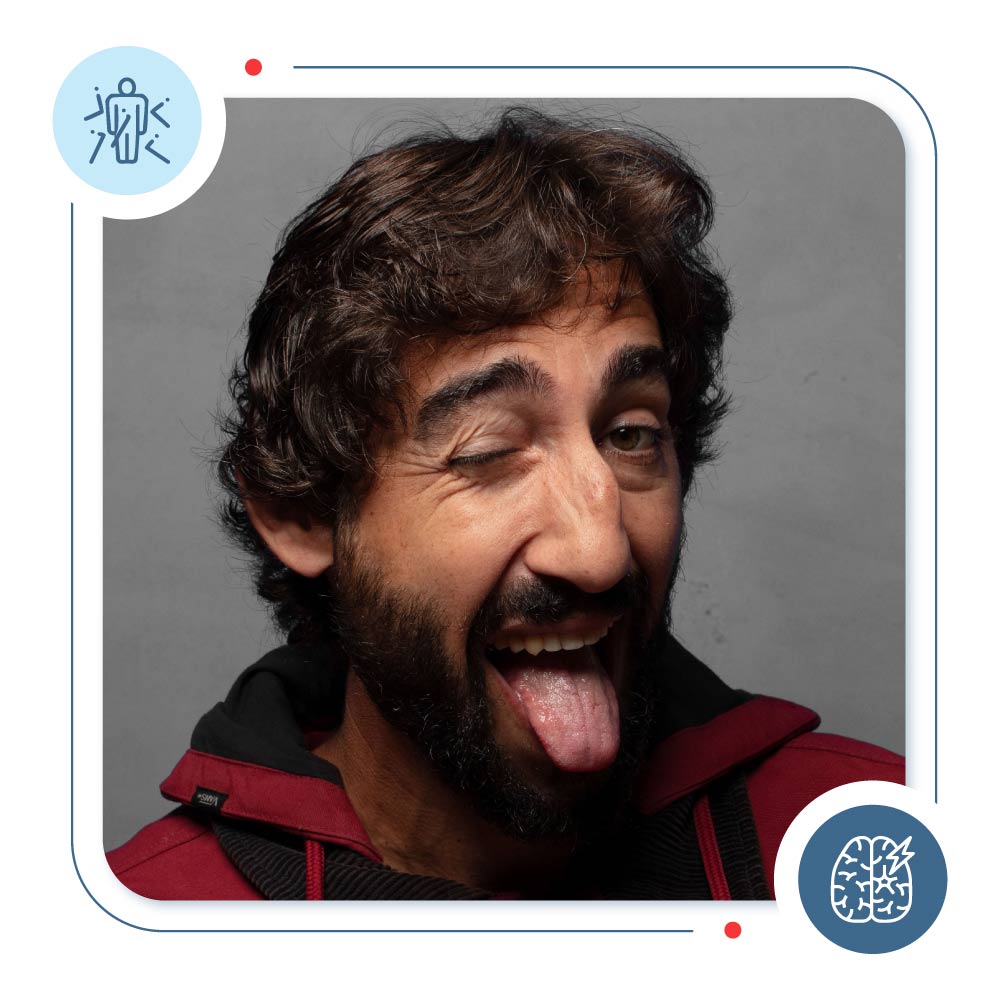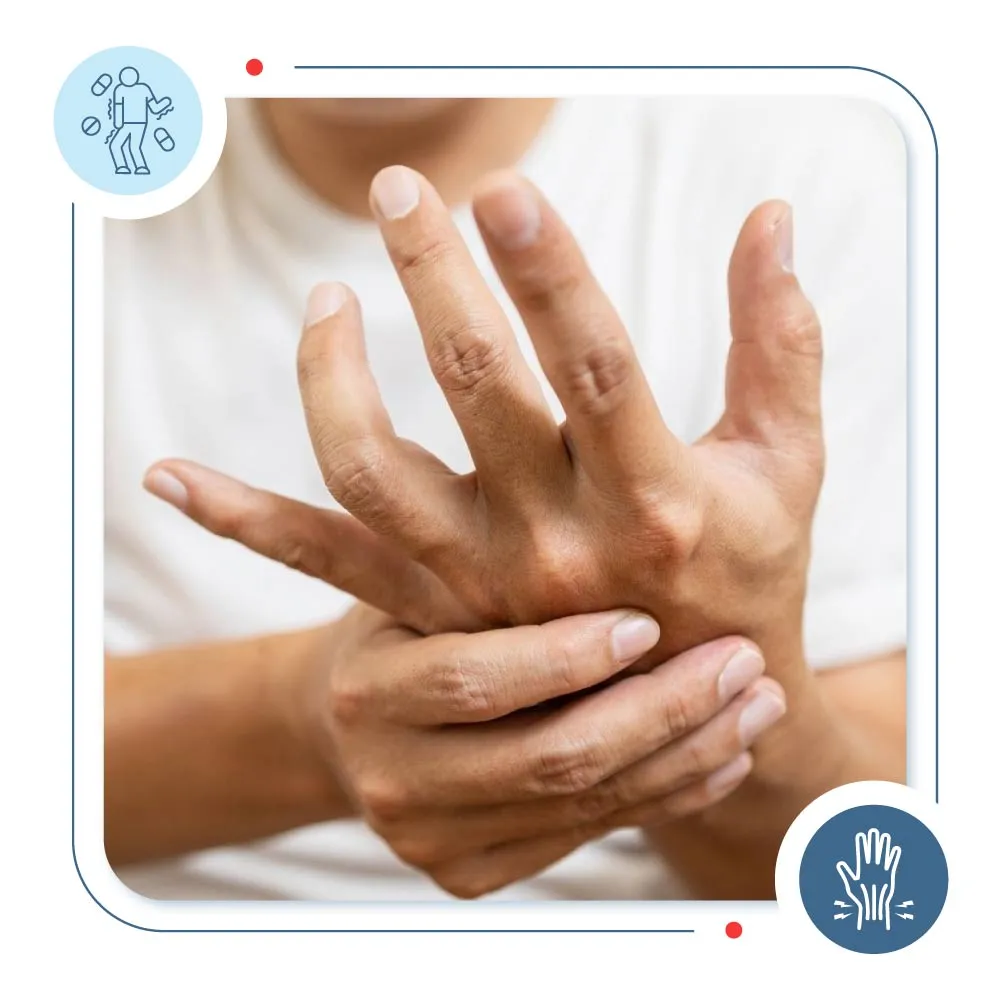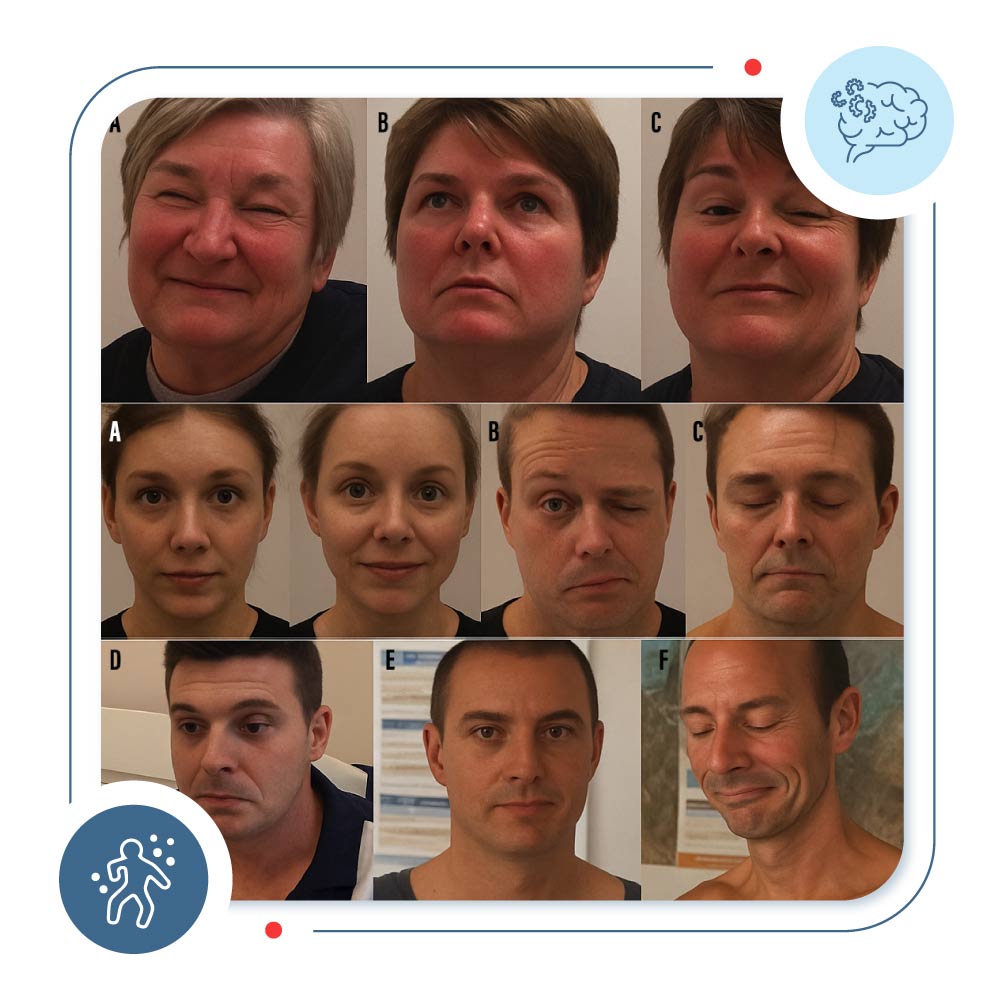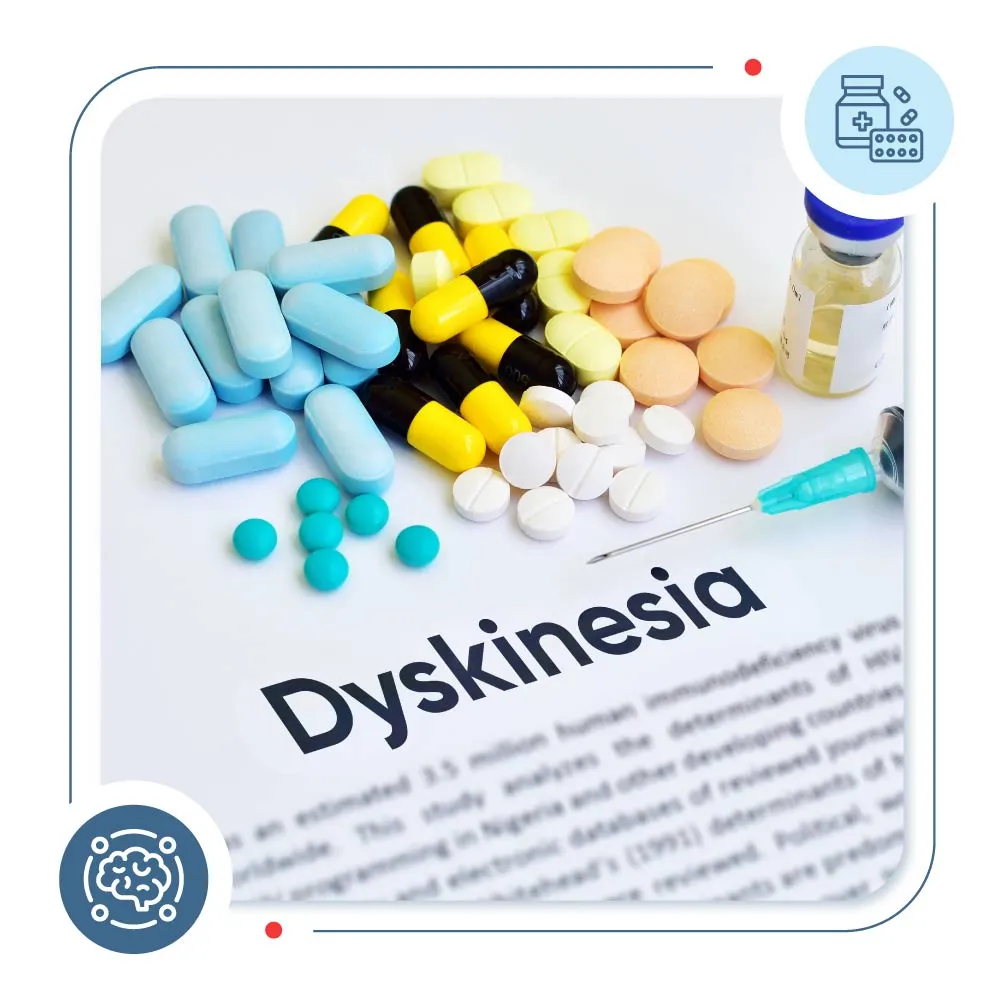Tardive Dyskinesia

What Is Tardive Dyskinesia?
Tardive dyskinesia (TD) is an iatrogenic disorder that manifests as repetitive, irregular, and involuntary twitching movements often affecting your face, tongue, limbs, or torso. The Diagnostic and Statistical Manual of Mental Disorders, Fifth Edition (DSM V) has redefined tardive dyskinesia as a medication-induced movement disorder that characteristically persists even after the cessation or change of the causative drug. DSM-V criteria to confirm the diagnosis of TD disorder extend to include the persistence of symptoms for at least one month after stopping the offending medication.
Tardive dyskinesia, an irreversible drug-related disorder, has an estimated prevalence of 20% in all patients treated with typical antipsychotics. Women are slightly more predisposed to developing TD disease than men.
Mid Cities Psychiatry offers comprehensive approaches for tardive dyskinesia diagnosis and treatment. If you or your loved ones are experiencing these uncontrollable, recurring movements, schedule a consultation with our professionals to explore available treatment options.

Tardive Dyskinesia Causes
Researchers have not yet determined the exact cause, but suggested tardive dyskinesia pathophysiology involves the long-term use of dopamine (D2) receptor-blocking drugs. This prolonged blockage not only hypersensitizes your brain to dopamine but also upregulates dopamine-receptor production, which results in unnecessary movements. Some of the triggering drugs include:
- 1st generation antipsychotics (typical)
- 2nd generation antipsychotics (atypical)
- Certain antidepressants
- Antiemetics
Atypical antipsychotics bind loosely to D2 receptors and are less likely to result in TD as compared to typical antipsychotics.
While finding the exact cause of the disorder, researchers have identified several risk factors that make you prone to develop tardive dyskinesia, including:
- Length of exposure to the drug
- African Americans are more susceptible than the White race
- Post-menopausal women have shown an incidence of as high as 30% after being exposed to antipsychotics for a year, suggesting a protective effect of estrogen against TD movement disorder
- Schizophrenic, schizoaffective, and bipolar patients are likely to suffer from tardive dyskinesia



Tardive Dyskinesia Symptoms
Symptoms of TD disorder differ from person to person in terms of presentation and severity. Most individuals experience a group of TD movements that usually interfere with daily life activities. Some typical tardive dyskinesia movements include:
- Facial tics, which are repetitive, involuntary movements such as
- Lip pursing or smacking
- Frowning or grimacing face
- Jutting out the tongue
- Sudden uncontrollable vocal sounds
- Uncontrollably and rapidly blinking your eyes (blepharospasm)
- Sudden jerking of hands, arms, or legs (myoclonus)
- Swaying or twisting motions of the torso
- Abnormal body posture due to dystonia (uncontrolled muscle contractions)
- Inability to stay still (akathisia)
Severe forms of tardive dyskinesia cause respiratory irregularities due to unrestrained spasm of the muscles of respiration. Tardive dyskinesia stemming from long-term usage of antipsychotic medications might lead to Parkinsonian symptoms, which include tremors, muscular stiffness with pain, slowing of movements, and difficulty walking due to uncoordinated gait.

Tardive Dyskinesia Treatment
FDA-approved medications
- Valbenazine
- Deutetrabenazine
Other approaches
- Deep brain stimulation DBS


FAQs
01
Is tardive dyskinesia painful?
While TD movements are not painful, recurring motions result in a muscular strain that builds unmanageable discomfort over time.
02
What should I do about my psychiatric medication if I experience the symptoms of TD?
You should immediately consult with your healthcare provider, as the abrupt stoppage of drugs might complicate your psychiatric illness. Your psychiatrist will either switch the drug or lower the dose to a minimum effective level to taper it off slowly.
03
What are the complications of tardive dyskinesia?
Though tardive dyskinesia poses progressive disturbances of movements, which are potentially embarrassing, it is generally not life-threatening. Yet, severe TD of the larynx or diaphragmatic muscles can be fatal due to respiratory hindrances.
04
What is the long-term prognosis of tardive dyskinesia?
While some individuals might get completely better over the years after discontinuing the drug, tardive dyskinesia is an unremitting, chronic disorder that can’t be reversed with the withdrawal of the triggering medication in the majority of patients, but it can be well managed with ongoing treatment.
05
Can it be prevented?
Prevention is possible by using the lowest effective dose of antipsychotics for psychiatric illnesses and continuously monitoring the side effect profile of the drugs. Patients showing earlier tardive dyskinesia symptoms are recommended to switch to clozapine, which has a much lower incidence of the disorder.
Real Stories, Real Recovery





We provide a comprehensive care provision for the most common mental issues people struggle with, such as PTSD, ADHD, OCD, anxiety, depression, sleep disorder, schizophrenia, and numerous other mental health conditions.





